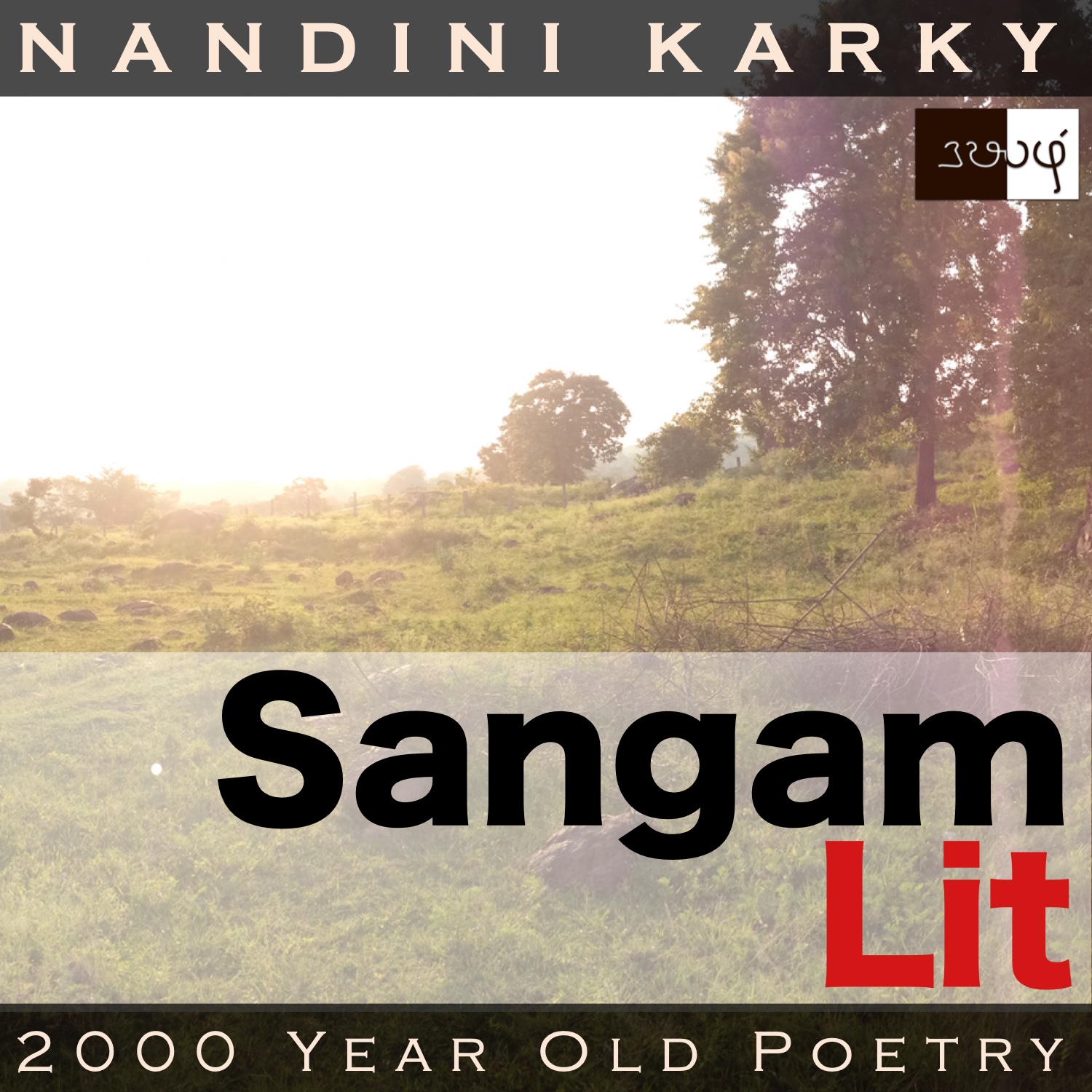Podcast: Play in new window | Download
Subscribe: Apple Podcasts | Spotify | Amazon Music | Android | iHeartRadio | TuneIn | RSS | More

In this episode, we perceive the anguish in a mother missing her daughter, as portrayed in Sangam Literary work, Natrinai 198, penned by Kayamanaar. Set in the drylands of ‘Paalai’, the verse speaks in the voice of a foster mother to a couple she meets on the way, as she searches for her daughter, who has eloped away.
சேயின் வரூஉம் மதவலி! யா உயர்ந்து
ஓமை நீடிய கான் இடை அத்தம்,
முன்நாள் உம்பர்க் கழிந்த என் மகள்
கண்பட, நீர் ஆழ்ந்தன்றே; தந்தை
தன் ஊர் இடவயின் தொழுவேன்; நுண் பல்
கோடு ஏந்து அல்குல் அரும்பிய திதலை,
வார்ந்து இலங்கு வால் எயிற்று, பொலிந்த தாஅர்,
சில் வளை, பல் கூந்தலளே, அவளே;
மை அணல் எருத்தின் முன்பின் தடக் கை
வல் வில் அம்பின் எய்யா வண் மகிழ்த்
தந்தைதன் ஊர் இதுவே;
ஈன்றேன் யானே; பொலிக, நும் பெயரே!
The poem opens with the address ‘சேயின் வரூஉம் மதவலி’ meaning ‘O strong young man from afar’. I wonder how the foster-mother can tell that this person has come from a far-off place! Does she scan him like a Sherlock to see the traces of the paths he has traversed or is it a simple statement to say that she has never seen the young man in those parts? Keeping these questions alive, we move on to other facets of the poem, wherein we meet two different trees – one, the ‘ya’ or the ‘aacha’ tree and the other, the ‘omai’ or the ‘toothbrush tree’. Further along the poem, there’s a description of a lady in the words ‘சில் வளை, பல் கூந்தலளே’ meaning ‘a woman wearing few bangles and much tresses’. Could this indicate that her bangles may be few but her inherent beauty was invaluable? The phrase ‘ஈன்றேன் யானே’ gave me a lot of confusion for it means ‘I gave birth’ and this poem is said to be in the words of a foster mother, an important character in Sangam poetry, who aids the birth mother and raises the daughter of a wealthy family. So, although the foster mother has known the girl from birth, she is not the one who gave birth to her. Let’s explore why the foster mother says otherwise about the girl in question!
The man and lady had been in a love relationship for a while. News of their affair reaches the ears of the girl’s kith and kin and she’s confined to the house. So, the lady and man decide that the only course of action would be to elope away to the man’s village. The kith and kin realise the next morning that the lady has left in the company of the man. The foster mother, hoping to reach the daughter, runs along the path she’s said to have gone in. On the way, she meets a couple and at first, she mistakes the girl to be her own daughter. To the accompanying man, she says, “O strong and powerful man, who comes from far away! My daughter left yesterday, to the path in the forest filled with tall ‘ya’ trees and extending ‘omai’ trees, to journey to a distant place. Seeing my daughter in this girl, my eyes brim with tears. I plead to you from this place, her father’s hamlet, shorn of its beauty since she left! With line-streaked, uplifted loins shaded with pale pallor spots, with shining white teeth and glowing garlands, she was a girl with few bangles and plentiful tresses. This is the town of her father, a bull-like man with a black beard and huge arms that wields a strong bow and arrow, a man of infinite strength and flowing hospitality. And, I’m the one who gave birth to her. May your name flourish with fame!” With these words, she’s bidding the man to tell her about the whereabouts of her own daughter and the man, whom the girl has eloped with.
Now, for the details! The foster mother first salutes the man, praising him as a strong and powerful one. Then she says, amidst those tall trees, the girl accompanying the man seemed to be exactly like her daughter, who had left her home the previous day. A lady filled with perfect beauty, glowing garlands, bangles and shining tresses. Then, she turns to talk about the lady’s father, whom she describes as a powerful, bull-like man, who was known for his prosperity and generosity. She puts forth a plea to this man, standing in the town of the lady’s father. Within this description of the lady’s father and his town, the foster mother seals an invitation to this travelling man. The reason for that, is to coax him to part with the details of her own daughter, whom he may have met on the way. It’s at this moment she declares that she bore the girl, whom she’s been searching for. The foster mother finishes by blessing the man’s name and wishing him fame!
We are left with the question of why the foster mother calls herself the birth mother? One possibility is that it’s an overflowing feeling of love. Over the years, having raised the lady as her own daughter, taking care of all her comforts and seeing her bloom from a girl into a woman, perhaps the foster mother forgets that she didn’t give birth. For what is motherly love? Is it just the bearing of the child in the womb for a few months or a life time of love bestowed? So, behind what appears to be a logically untrue statement, we see that it’s love speaking. Another striking facet is the mother mistaking the strange lady in the path as her daughter. This echoes many such familiar moments in our lives, where the eyes seem to trick us and show what we are searching for, rather than what is!




Share your thoughts...